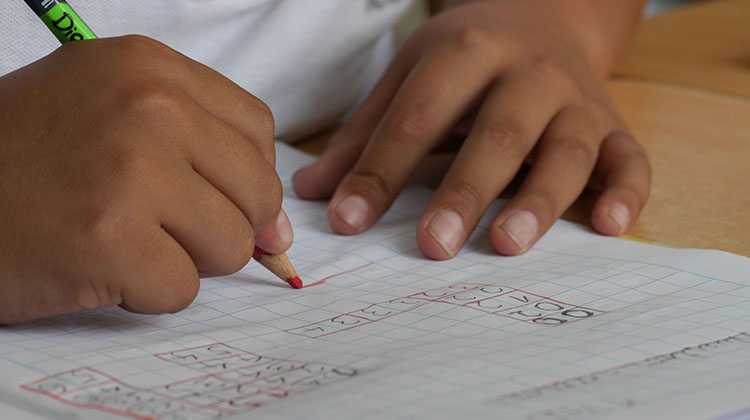The Five-fold Path to Maths Success

Maths proficiency is on the decline but there are ways forward and they are all about communicating clearly.
Maths has its own set of symbols, vocabulary and concepts and making sure students understand this new language sets them up for success.
In a report, Maths Practices You Can Count On: Five Research-Validated Practices in Mathematics written by Sarah Powell et. al., five key practices of numeracy education and what they can look like when applied to a classroom setting are outlined.
These practices include 1) Focusing on the language of mathematics, 2) Using multiple representations, 3) Being systematic and explicit with instructions, 4) Building fluency, and 5) Focusing on word problems.
The report states ‘One important aspect of mathematics language is vocabulary. One of the reasons to focus instruction on mathematics vocabulary is because there are hundreds of terms that students need to know. In the early elementary grades, students may be expected to learn and understand 100 to 150 mathematics vocabulary terms (Powell et al., 2021). In Grade 3 (around age 8 to 9), mathematics vocabulary expectations increase to more than 300 terms with another increase up to 500 terms in Grade 6 (around age 11 to 12).
‘As noted by Powell et al. (2021), across kindergarten through Grade 8, students learn more than 1200 unique mathematics vocabulary terms. Furthermore, the vocabulary expectations within mathematics curricula can be cumbersome. That is, Barnes and Stephens (2019) determined that several textbooks from the early elementary grades suggest students learn more than 40 different terms within a unit!’
The report says that to teach maths successfully, teachers must be systematic and be explicit.
Maths proficiency relies on building skills, student learning occurs over time and acquisition of easier (i.e., foundational) mathematics skills is necessary for developing adequate understanding of more complex mathematical concepts.
That means teachers must be familiar with the developmental progression of skills, such as the National Numeracy Learning Progression (Australian Curriculum, Assessment and Reporting Authority, n.d.) and consider the content that students learned in previous grade levels as well as what they will be expected to develop with proficiency in future mathematics courses.
Knowledge of the progressions should be used to determine what content will be taught, when it will be taught, and how it will be taught.
The report states that teachers should also use a framework of delivery that includes three main components: modelling, practice, and supporting practices.
See https://www.cis.org.au/publication/maths-practices-you-can-count-on-five-research-validated-practices-in-mathematics/